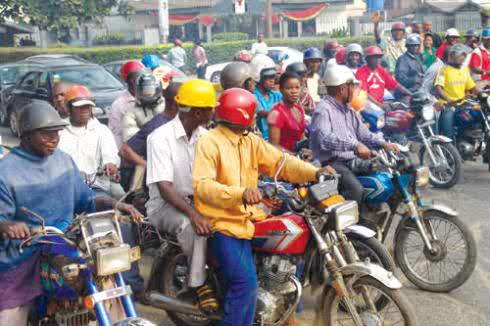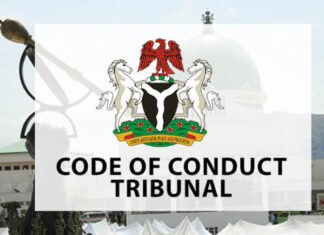By Adenike Ademola
Being a rising African mega city, access to a highly organised public transportation system remains one of the major challenges of Lagos residents. As it is with other mega cities such as New York, New Delhi and Jakarta, population growth in Lagos compounds the challenge of public transportation. With a population in excess of 18 million people while also attracting 65 per cent of Nigeria’s commercial activities, Lagos, no doubt, has a peculiar public transportation challenge. The ubiquitous Lagos traffic, complicated by the legendary Lagosians’ knack for impatience and lawlessness in addition to motorists’ impunity, make commuting in Lagos a near nightmare.
It is, therefore, a combination of the aforementioned that makes it rather expedient for Lagos residents to experiment with other means of transportation considered faster and timely. It is this situation that necessitated the introduction of commercial motorcycles, popularly referred to as Okada which, for obvious reasons, became the preferred alternative of most residents. In the olden days, motorcycles were used in villages and urban slums because they could wade through difficult terrains that buses and cars could not venture into. But nowadays, Okada is used in major Nigerian cities such as Lagos by businessmen/ women, government workers and students as well as traders to overcome traffic congestions and navigate roads that are inaccessible to other automobile.
Rather than serve as a credible alternative means of transportation, the introduction of commercial motorcycle has been the bane of the society. Almost on a daily basis, we hear tales of the havoc being wreaked by commercial motorcycle operators on their hapless passengers. And, perhaps, the most disturbing thing about the operators is their constant involvement in crimes, mostly armed robbery and kidnapping among others. Recently, the media were awash with the news of the kidnapping of three school girls from Barbington Macaulay Seminary School in Ikorodu, a suburb of Lagos. The criminals who invaded the school to carry out the dastardly operation were reported to have come aboard motorcycles. Similarly, some of the notorious Lagos bag-snatchers usually carry out their nefarious acts with the aid of motorbikes.
It is, thus, as a result of the threat posed by Okada riders and other traffic offenders that the Lagos State Government came up with the State Traffic Laws. And since all efforts at initiating attitudinal change among the commercial motorcycle operators and others have not been yielding the desired results, there is the need to tackle old challenges with new methods. And to truly succeed in the war against traffic chaos in Lagos, the government had to apply the rule of law.
Universally, the rule of law operates on the legal theory that law should govern a nation and not capricious verdicts of ‘powerful’ individuals. The rule of law underlines the power and weight of law within society, principally as a restraint upon behaviour. The guiding principle behind the rule of law is the prevention of anarchy and the creation of a just society where everyone is equal before the law. Further, the rule of law presupposes that no law-breaker must go unpunished.
According to the State Traffic rule, it is an offence for commercial motorcycle riders to ply some designated routes. Also, a set of codes of conduct are set out to guide their operations. These include barring of their operations on major highways, BRT (Bus Rapid Transit) lanes, medians, walkways as well as all bridges. In addition, riding without the use of crash helmets, carrying of pregnant women and children, carrying of more than one passenger at a time as well as disobedience to traffic signal lights are forbidden.
But more than half of commercial motorcyclists do not obey these rules. And this has resulted in fatal accidents, which has prompted the National Orthopedics Hospital (NOH), Igbobi, Lagos, to dedicate wards to the victims of motorcycle accidents in the state. To arrive promptly at their destinations and also make brisk business, the commercial bike riders often ride recklessly, usually against the flow of traffic, knocking down unsuspecting pedestrians or having head-on collision with on-coming vehicles. Consequently, as fallouts of this thoughtless action, people are being maimed or killed from time to time in preventable circumstances. In fact, a sizeable number of Lagos residents have had one sad story or another to tell about their terrible ordeals with Okada operators.
On the whole, the anguish being caused by commercial motorcycle operation far outweighs its significance. However, opinions are sharply divided concerning whether the state government should prohibit the use of Okada outright as a form of transportation. While a large percentage of Lagos residents are in support of placing a total ban on the activities of commercial motorcyclists, others, especially those that live in areas that are hard to reach by vehicles, think otherwise. While one agrees that in this era of dire economic straits, an outright ban on Okada could spell doom for those who rely on it for economic survival, it has become quite crucial for the state government to bring the full weight of the law to bear on all errant Okada riders. Therefore, to minimise the damage being done by Okada riders, the state’s traffic laws should be enforced to the letter and law enforcement agencies in connection with the enforcement of these rules must not in any way compromise with culprits.
• Ademola wrote from Lekki, Lagos.













